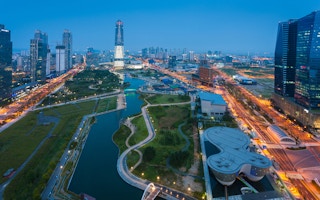City leaders have more power to determine their energy needs than they realise.
That’s the central theme of a new report that Arup prepared for the World Energy Council. “The report shows that civic leaders can succeed without national policies in place,” Ian Gardner, global energy leader for Arup, writes in a blog post.
The report, Innovating Urban Energy, was released at the World Energy Congress in Istanbul, which runs October 9 to 13. It emphasises that emerging technologies such as smart meters, local generation and hydrogen fuel cells can help cities wean themselves from fossil fuel.
Arup also touts “transactive energy,” a new approach to buying and selling energy that seeks to better harmonise supply and demand.
London and New Songdo, South Korea are among the cities highlighted in the report for their comprehensive energy plans. The study underscores the importance of integrating energy efficiency into urban planning.
The authors note how the marketplace is changing from a 20th-century centralised model to a “data-driven, multi-directional, market-based platform.”
More details about the report are here. Make sure to check out the interactive map with pop-ups about energy in cities.
This story was published with permission from Citiscope, a nonprofit news outlet that covers innovations in cities around the world. More at Citiscope.org.

















